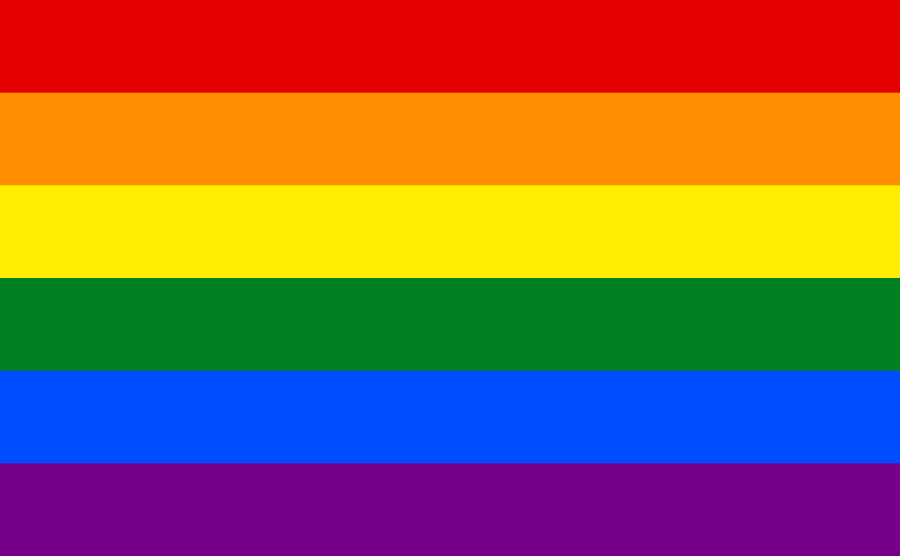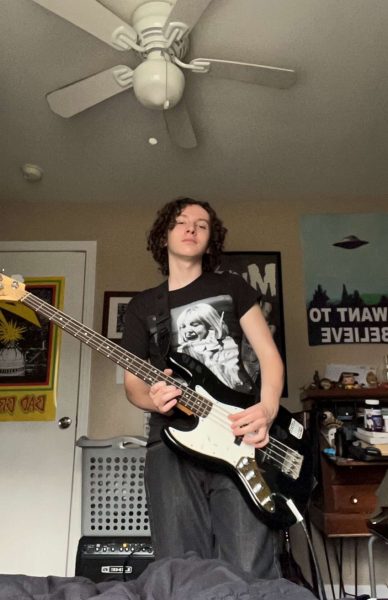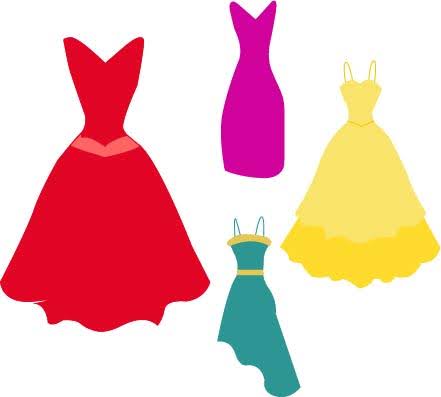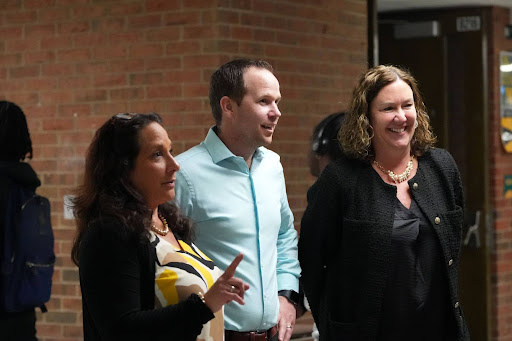The other F word
October 11, 2017
I am a staunch pacifist. I believe peaceful, indignant protest is the key to being heard over the deafening white noise of injustice. However, I don’t think I’ve ever come as close to violence as I did one day sophomore year.
There was a group of boys who would congregate in the corridor. They were anchored to a wall of lockers like malformed blood cells on a capillary wall. By and by over the course of 20 minutes, the clot burgeoned out into the walkway, obstructing through traffic. As the mass grew, so did its rowdiness. Soon the whole hall could hear their exclamations.
They would take turns exchanging insults, a strange sort of game they’d play. Why these “friends” berated each other in such a manner is a matter for another day. Though I remember distinctly their favorite detractions: “faggot,” and sometimes “little faggot” for excess emphasis. “Fag” if brevity was necessary. Each form nearly always followed by roaring laughter.
Faggot! Ha!
The word seemed to echo off the crisp white floor tiles, though such acoustics were impossible to attain in this environment. Too many bodies to absorb the sound. No, the echoing was in my head. The hallway occlusion mocked me with a collective smirk, despite the fact that none of them had been addressing me directly. Did they know they were in the presence of a “little faggot”? Probably not. Would they have cared? I doubt it.
This was not an isolated incident. It’s not like I hadn’t heard it used at school before. It just so happened that on this day, the closet was feeling more claustrophobic, more isolated than usual.
I imagined smacking the boy from whose mouth the word escaped clear across the face. I wanted him to feel the sting on his skin, the humiliation of such violation in public. I wanted him to feel the same sensation that the word evoked in me.
I walked toward the group of boys and came to a crossroads. What is the right thing to do? Tell them off? Explain to them how vile the sentiment of the word really is, but risk exposure? Bottle the anger and carry on safely?
I was afraid. I kept walking. I wish I hadn’t.
According to the Oxford Dictionary, “faggot” is a Middle English word that originally referred to “a bundle of sticks, twigs, or branches bound together and used as fuel, a fascine, a torch, etc.” It’s kindling. The smallest, most expendable twigs and brush to beget a blaze.
Merriam-Webster defines fag as slang for cigarette. The smoke of a fag will blight your lungs before you crush the charred stub beneath your heel.
Today the word is defined specifically as a derogatory term for gay men, although it is used many times as a blanket offense to homosexual people. It is insulting because it is dehumanizing. It implies that because we don’t adhere to the same “norms” as our heterosexual counterparts, we are no more and no better than twigs to be burnt up in a fire.
North is a school that claims to pride itself in diversity, and yet many of its students seem hard pressed to follow suit. The normalized, widespread use of such a violent slur as “faggot” is indicative of that.
According to The Trevor Project, LGB (lesbian, gay, bisexual) youth are nearly three times more likely to contemplate suicide than heterosexuals. That is a direct result of homophobia and the hostile environment that it creates. It is not an environment we can afford to continue cultivating here at North.
Today is National Coming Out Day. In honor of that, I have a few things to ask of readers who do not identify as part of the LGBTQ community: Take stock of your own indiscretions and those of the people you surround yourself with. Speak up for those who may be too afraid to speak up for themselves. Do not allow your peers to stand alone.













